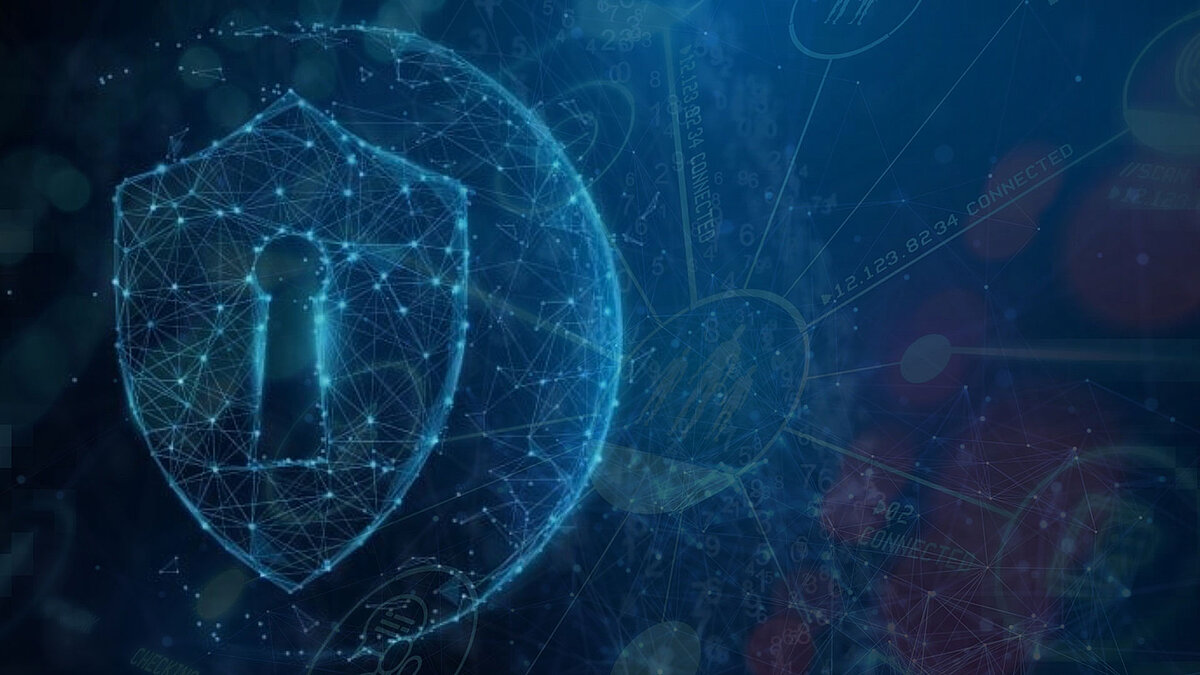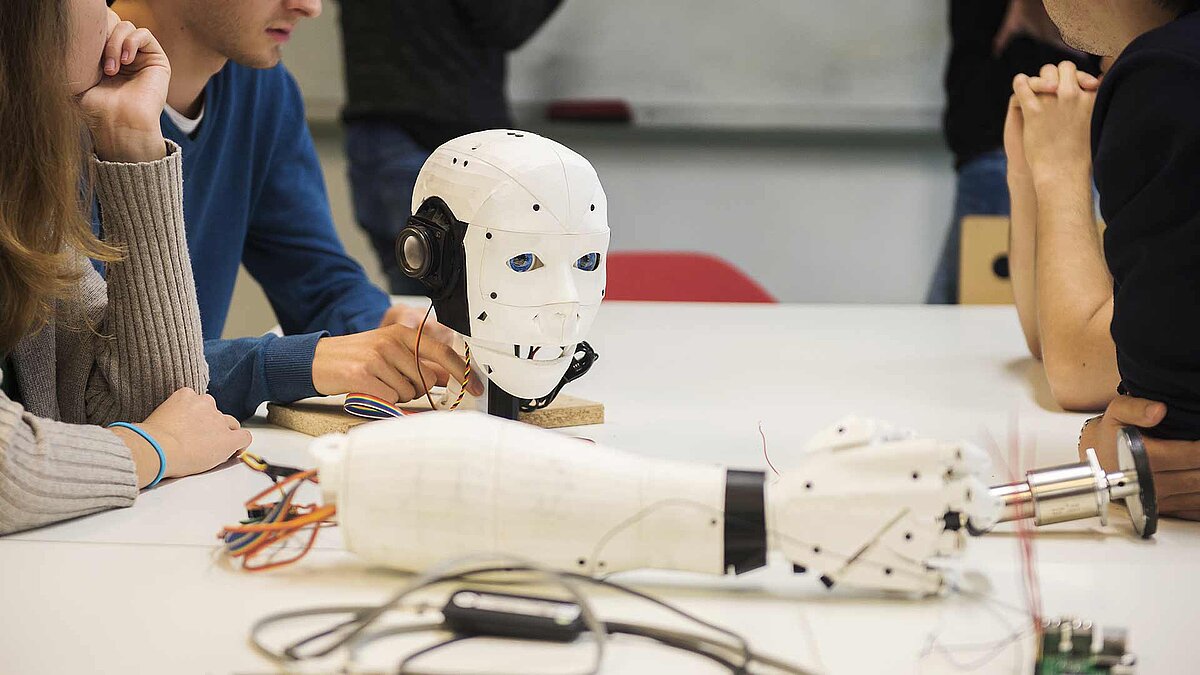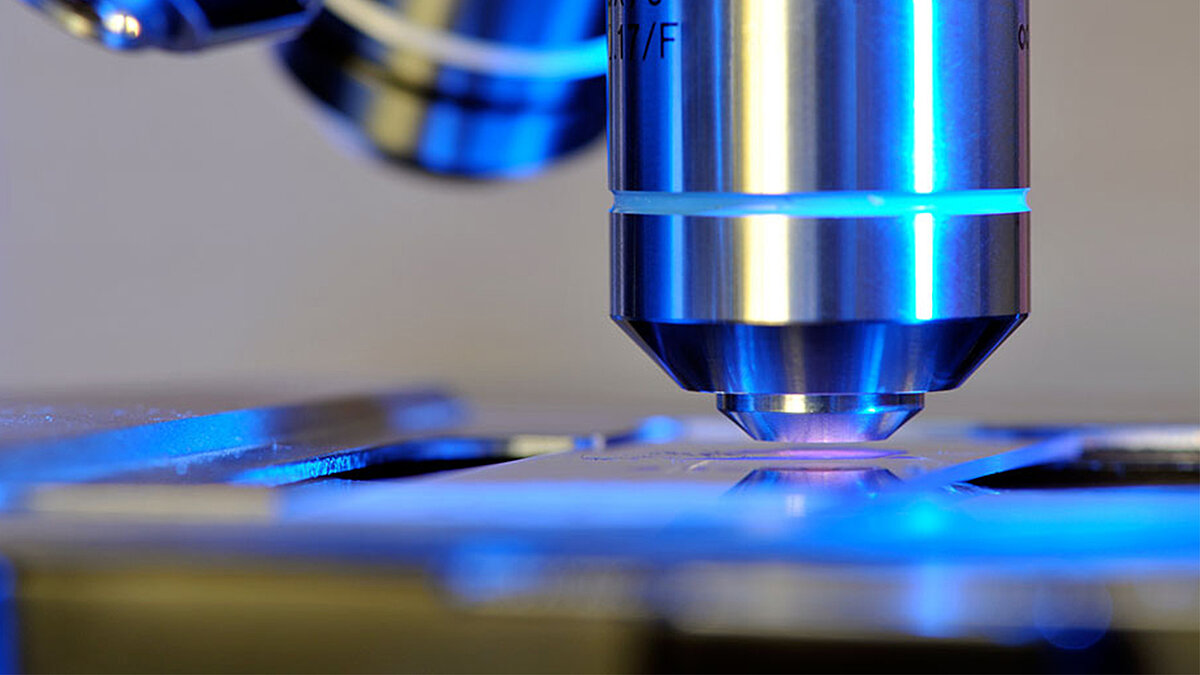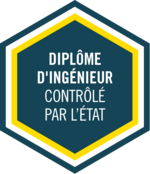
Artificial intelligence and cybersecurity engineer programme
ESIEE Paris offers an engineering program with a specialization in artificial intelligence and cybersecurity. The programme is accredited by the engineering titles commission (CTI).
Degree
Engineering
Modality
Full-time
Duration
2 years
Degree level
Bac +5 master's degree
Delivered in English, the programme focuses, during the first year, on fundamental courses in computer science, artificial intelligence, and cybersecurity. During the second year, you reinforce your knowledge in the advanced fields of artificial intelligence and cybersecurity.
Why should I become an artificial intelligence and cybersecurity engineer?
Innovating in new digital technologies while ensuring the protection of information data is a real challenge that companies have to meet.
As an engineer in artificial intelligence and cybersecurity, you can easily find a position in France or abroad in the fields of new digital technologies. In these advanced fields of computer science, companies are looking to recruit qualified, creative and innovative people. After your training, you can also pursue a PhD and become a researcher in computer science.
If you want to be part of tomorrow's digital revolution, become an artificial intelligence and cybersecurity engineer!

What will the programme bring me?
Objectives
- Know how to design and develop a software that uses AI methods
- Know how to secure and test the security of a software or an information system
- Know how to work in an international context
Skills
- Be proficient in artificial intelligence and data manipulation algorithms and tools
- Be able to choose the right AI methods and tools to solve a given problem
- Be familiar with the different vulnerabilities that a computer system may have
- Master the best practices and methods to secure a computer system
Professional opportunities
Examples of applications
- Full-stack development, massive data processing
- Information system security
- Risk analysis, pentesting
- Machine learning applied to interventional cardiology
- Smart cities and home automation, corrective maintenance, etc.
Professions / Positions
- Analyst Soc (Security Operation Center)
- Data scientist
- AI engineer
- Cybersecurity engineer
- Research and development
- Consultant, auditor, analyst
Sectors of activity
- Telecommunications
- Aerospace
- Medical
- Security and defence
- Bank sector
- Information technology
Companies that have recruited graduates from the sector:
Renault PSABoschDelphiEADS-AirbusESAThalesCNESSafran-SnecmaOrangeSFRAlcatel-LucentCiscoGE HealthcareSiemensSanofi-AventisSagem IBMSopra
96 %
of the young graduates found their first job within 6 month after of graduating (promo 2021)
84 %
of our students even found a contract before the end of their training
42 072 €
is the average annual gross salary (France and International)
How is the programme structured?
At the end of the first year of the engineering cycle, students choose their field of study. The course of study is spread over two years with compulsory and optional scientific and technical courses, management courses and modern languages.
Programme
2nd year of the engineering cycle
The courses take place over two semesters, each one subdivided into two periods. The first semester consists of two teaching periods. The second semester is made up of one teaching period and an internship period of at least 12 weeks. From January to April, students must work in teams on multidisciplinary projects proposed by industrial partners, laboratories or ESIEE Paris teachers. All students may take optional modern language 2 courses.
- UE - Advanced science and technology (330 h - 27 ECTS)
- UE - Open science and technology (90 h - 10 ECTS)
- UE - Management and human sciences (120 h - 7 ECTS)
- UE - Modern languages (76 h - 4 ECTS)
- Internship (12 ECTS)
3rd year of the engineering cycle
The courses take place over in two semesters. The first semester consists of two teaching periods. In the second semester, the student must complete an end-of-studies internship of at least 24 weeks (6 months) in a company or research laboratory.
- UE - Advanced science and technology (180 h - 18 ECTS)
- UE - Open science and technology (60 h - 5 ECTS)
- UE - Management and human sciences (90 h - 5 ECTS)
- UE - Modern languages (42 h - 4 ECTS)
- Internship (30 ECTS)













